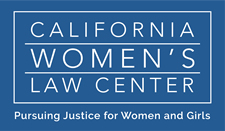“Will this institution survive the stench that this creates in the public perception that the Constitution and its reading are just political acts?” – U.S. Supreme Court Justice Sonia Sotomayor
The U.S. Supreme Court heard oral argument yesterday in Dobbs v. Jackson Women’s Health Organization, the first case the Court has considered on the constitutionality of a pre-viability abortion ban since Roe v. Wade was decided in 1973.
Like many of you, CWLC is disheartened, although not surprised, by the comments from the Court’s conservative justices indicating their willingness to uphold Mississippi’s 15-week abortion ban—and possibly to overturn Roe altogether.
Justice Sonia Sotomayor, a champion of reproductive rights and gender equity, made several important points during oral argument, noting the risk to people who are forced to continue an unwanted pregnancy (many of whom already face crushing health disparities): “So when does the life of a woman and putting her at risk enter the calculus? Meaning, right now, forcing women who are poor — and that’s 75 percent of the population and much higher percentage of those women in Mississippi who elect abortions before viability — they are put at a tremendously greater risk of medical complications and ending their life, 14 times greater to give birth to a child full term, than it is to have an abortion before viability.”
Abortion restrictions disproportionately affect low-income communities and people of color, and a ruling overturning or weakening Roe will only exacerbate this disproportionate harm.
Three justices argued that if the Court were to reverse course and overrule its holdings in Roe and Planned Parenthood v. Casey (which reaffirmed the right to abortion in 1992) merely because the Court now has a conservative majority, it would further erode public confidence in the Court. As Justice Sotomayor pointed out, Mississippi’s lawmakers have passed unconstitutional abortion bans because the Court is now more conservative.
U.S. Solicitor General Elizabeth Prelogar, arguing on behalf of the U.S. Justice Department in support of the right to abortion, stated: “The Court has never revoked a right that is so fundamental to so many Americans and so central to their ability to participate fully and equally in society.” Even though as many as 80% of Americans believe abortion should be legal in at least some circumstances, it appears increasingly likely that the Supreme Court will restrict this right when it issues a decision in this case by the summer of 2022. If that happens, it has been estimated that more than half of the states in this country are likely to ban abortion in all or most circumstances.
CWLC is also concerned about the ways in which allowing pre-viability abortion bans would create additional barriers to accessing care and require a significant increase in travel for people seeking abortions—many of whom will be traveling to California and other states that will continue to protect the right to abortion. The financial, medical, and psychological toll this type of travel has on people seeking abortions is a substantial burden that disproportionately affects low-income communities and people of color. CWLC submitted an amicus brief in Dobbs in September, highlighting these arguments and urging the Supreme Court to reject Mississippi’s unconstitutional abortion ban.
CWLC remains committed to safeguarding the reproductive health and freedom of girls and women—especially their right to choose. With your support, we will continue to advocate for policies that expand access to abortion and other reproductive care in California and across the nation.
